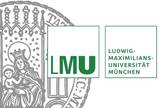Participants
Objectives of the Workpackage
The primary goal of WP 11 and our consortium is to transform into a European company and build a dissemination and commercial exploitation plan together with major healthcare stakeholders and target groups in the EU, including patient organisations, medical associations, health insurance companies, the pharmaceutical industry and health ministries. These coordinated activities will increase PRONIA’s likelihood of market uptake in that they will constitute a unique selling proposition of our prognostic products to the healthcare markets. Thus, in the end we will be ready to deploy and commercially exploit PRONIA across different healthcare systems, making PRONIA and the EU the innovation leader in the new market for neurodiagnostic tools in Clinical Psychiatry.
Therefore, PRONIA will create thoroughly validated and easily deployable instruments for multi-dimensional risk assessment in pre-clinical and early psychoses. Due to their availability at the main entry points of the mental healthcare systems, these tools will significantly expand the catchment population of early recognition, moving it beyond the highly specialised clinical centres that are only few in number. Hence, they will promote the goals of the European Pact for Mental Health. Finally, the identification and validation of neurobiological risk signatures, which can be monitored throughout the clinical course, will reinvigorate the pharmaceutical industry’s interest in developing novel preventive compounds.
Description of the tasks
WP 11 is led by the ![]() University of Munich LMU and is responsible to ensure consortium’s freedom-to-operate (f-t-o) and possible intellectual property rights (IPR) by clarifying, strategizing and applying for potential IP rights at the respective patent authorities. Further it will push the consortium into the transformation into a European Economic Interest Grouping with the development of a business plan for the commercial exploitation of PRONIA’s prognostic services. All this is attended by a certification process in order to prepare for the commercial exploitation of PPS.
University of Munich LMU and is responsible to ensure consortium’s freedom-to-operate (f-t-o) and possible intellectual property rights (IPR) by clarifying, strategizing and applying for potential IP rights at the respective patent authorities. Further it will push the consortium into the transformation into a European Economic Interest Grouping with the development of a business plan for the commercial exploitation of PRONIA’s prognostic services. All this is attended by a certification process in order to prepare for the commercial exploitation of PPS.
Partners
Axel Stellbrink, Patent Attorney, ![]() Stellbrink IP, Munich
Stellbrink IP, Munich
Jürgen Späth, ![]() Ingenieursbüro für Qualitätsmanagemenet J. Späth (IQS), Freiburg
Ingenieursbüro für Qualitätsmanagemenet J. Späth (IQS), Freiburg
Christoph Zinser, ![]() Head Spin-off Service, University of Munich, LMU
Head Spin-off Service, University of Munich, LMU










